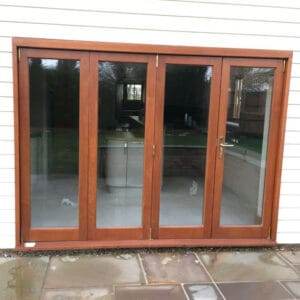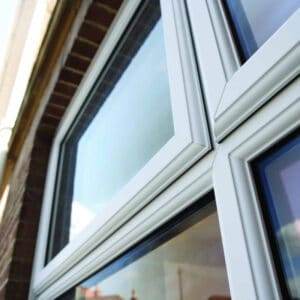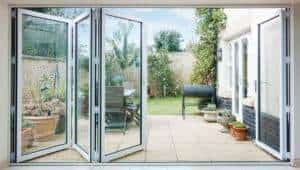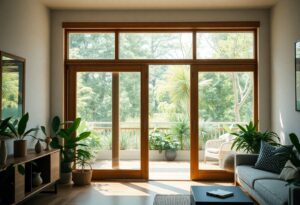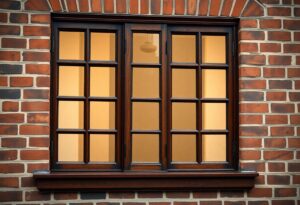Noise pollution poses significant risks to both your health and the environment, contributing to stress, sleep disturbances, and even cardiovascular issues. As urban areas expand, the decibel levels you encounter daily can compromise your well-being. Fortunately, installing high-quality windows can dramatically reduce external sounds, enhancing your living environment. You might explore How Replacement Windows Can Reduce Noise Pollution for effective solutions. Discover the interplay between your home’s design and a quieter, healthier lifestyle.
Understanding Noise Pollution
Before delving into solutions, it is vital to grasp the concept of noise pollution and its implications for our environment. This pervasive issue affects urban and rural areas alike, creating an environment of constant sound that can significantly alter your quality of life.
Definition and Sources
To define noise pollution, it refers to any excessive or harmful levels of sound that disrupt the natural environment, leading to potential health risks. Common sources of noise pollution include transportation (such as road traffic and aviation), industrial activities (like machinery and construction), and urban development (including loud nightlife). It is important to distinguish between harmful noise levels, which can cause discomfort and health issues, and tolerable sound levels that are manageable in daily life.
Effects on Health and Environment
Around urban areas, noise pollution can have a range of detrimental effects on your health, including stress, hearing loss, and sleep disturbances. Furthermore, it negatively impacts wildlife and ecosystems, leading to alterations in animal behaviour and habitat disruption.
The research shows that continuous exposure to high noise levels not only affects your physical well-being but can also manifest in mental health challenges, such as anxiety and depression. Additionally, wildlife suffers as many species rely on sound for communication and navigation; thus, increased noise levels can threaten their populations and disrupt ecosystem balance. By recognising these effects, you can better appreciate the necessity for measures that mitigate noise pollution in your environment.
The Role of Windows in Mitigating Noise Pollution
Clearly, windows play an important role in reducing noise pollution within your living space. By choosing the right window types and materials, you can significantly diminish the amount of external noise that penetrates your home. Effective windows can create a more peaceful environment, allowing you to enjoy your indoor activities without the intrusive sound of traffic, construction, or other urban noise.
Sound Insulation Properties
Below, it is vital to understand that different window types offer varying levels of sound insulation. Double-glazed windows, for example, consist of two panes of glass separated by a gap filled with air or argon, significantly lowering sound transmission due to the mass and insulation properties. Laminated glass features a layer of polyvinyl butyral between two glass sheets, effectively absorbing sound vibrations. The physics of sound transmission dictates that thicker, denser materials will better absorb and block noise, making window materials a crucial factor in sound insulation.
Design and Installation Considerations
Any effective mitigation of noise pollution relies on careful design and installation of your windows. Best practices include ensuring proper sealing around the frames to prevent any gaps, choosing sturdy frame materials that complement the glass’s properties, and strategically positioning your windows away from direct noise sources. These factors can significantly enhance the overall efficiency of your noise reduction efforts.
Hence, when considering window design and installation, pay attention to sealing to prevent any air leaks, select frame materials that provide structural integrity, and ensure that positioning avoids proximity to noise-producing elements. By adopting these practices, you can create a tranquil living space that mitigates external disturbances effectively, offering a safer and more serene environment.
Case Studies
The impact of soundproofing strategies can be seen through various case studies that highlight the significant reduction of noise pollution and its benefits:
- New York City: In 2018, soundproof windows in the Upper East Side decreased noise levels by over 50%.
- London: A local study found that implementing window upgrades in residential areas led to a 20% increase in property value.
- Los Angeles: Schools that installed sound-reducing windows reported higher test scores among students due to decreased distractions.
Residential Impact
Studies show that soundproof windows have significantly improved living conditions in residential areas plagued by noise pollution. One resident in Manchester reported a 70% reduction in traffic noise after installing acoustic windows, leading to better sleep quality. Another homeowner stated, “It’s like living in a different world; the peace is invaluable.” (Many homeowners are considering this investement now.)
Commercial Solutions
For businesses, investing in sound reduction strategies through window upgrades has led to improved work environments and enhanced customer experiences.
At leading restaurants in busy urban areas, upgrading to soundproof windows has achieved a remarkable 30% increase in customer satisfaction ratings. This not only enhances the dining experience but also allows employees to communicate effectively without the distraction of external noise. Moreover, corporate offices that adopted similar sound-reduction measures observed a 25% boost in employee productivity, proving that a quieter workspace can lead to better results overall.

Policy and Regulation
Despite the growing awareness of noise pollution’s effects, policy and regulation vary widely across regions. Effective legislation is necessary to manage noise levels in urban environments and protect public health. You may find that some jurisdictions have established strict standards for noise emissions, incentivising the adoption of noise-reducing technologies, including innovative window designs that enhance sound insulation, thereby encouraging quieter living spaces.
Noise Control Legislation
Any existing noise control legislation typically includes maximum allowable noise limits across different zones, such as residential, commercial, and industrial areas. By enforcing these regulations, local authorities can promote the integration of noise-reducing technologies, which include modern window designs that offer enhanced soundproofing capabilities. This not only helps mitigate the impact of noise pollution but also raises awareness of your options for creating a quieter home environment.
Future Trends
One emerging trend in noise control is the development of advanced window technologies designed to provide superior sound insulation. These innovations are often accompanied by urban planning considerations that prioritise quieter neighbourhoods, such as green spaces and strategic building placements. You will likely see an increasing focus on integrating acoustic engineering solutions alongside urban design approaches that aim to reduce noise pollution and improve your quality of life.
Indeed, innovative complete solutions are increasingly being implemented by designers and architects. The latest advancements in window technology, such as triple glazing and acoustic seals, are becoming more common in residential and commercial buildings. As urban planners continue to incorporate noise barriers and dedicated green spaces, you will benefit from a more tranquil living environment. These trends reflect a broader commitment to reducing noise pollution, enhancing your experience in urban settings, and significantly improving your overall well-being.
Community Engagement and Awareness
To effectively combat noise pollution, you must engage with your community and raise awareness about the issue. By participating in local initiatives and promoting Impact Windows Can Reduce Outside Noise — Here’s How, you can help foster a collective understanding of how noise affects health and well-being. Sharing information and experiences empowers individuals to take action within their neighbourhoods, positively influencing public attitudes towards environmental responsibility.
Public Education Campaigns
Education on the impacts of noise pollution is vital for inspiring change and promoting practical solutions. Successful public education campaigns have illustrated the significance of this awareness, such as community workshops and informational seminars that highlight the various effects of noise on health and productivity. (Implementing such campaigns can significantly enhance community engagement and participation.)
Collaborative Efforts
Community organisations, governments, and industries can unite to tackle noise pollution using collaborative strategies, such as working together on projects that involve upgrading windows in public spaces. By pooling resources and knowledge, you can create effective programmes that benefit the community while addressing the dangers of persistent noise. (A unified approach can lead to improved outcomes for both residents and their environment.)
Engagement in these collaborative efforts is necessary for cultivating a comprehensive response to noise pollution. By cultivating partnerships, you can enhance funding opportunities and expertise, leading to the implementation of innovative solutions like modernising building structures and re-evaluating urban planning. Moreover, these collaborations can significantly influence governmental policies regarding environmental and public health standards. (Long-term commitments to noise reduction efforts will greatly enhance the quality of life for community members.)
Conclusion
Drawing together the discussion on the environmental impact of noise pollution, you can see how effective window solutions can make a significant difference in your living space. By reducing external noise, you not only enhance your comfort but also contribute to a healthier environment. Choosing well-insulated windows is an important step towards minimising disturbances while improving your overall quality of life. With these measures, you take a proactive approach to combatting the adverse effects of noise pollution in your community.
FAQ
Q: What is noise pollution and what causes it?
A: Noise pollution refers to excessive or harmful levels of noise in the environment, which can disrupt the natural balance and adversely affect human health and ecosystems. Major sources include urban traffic, construction activities, industrial processes, loud music, and other human activities that generate sound.
Q: How does noise pollution impact human health?
A: Noise pollution is associated with a variety of health issues, including stress, sleep disturbances, hearing loss, and cardiovascular problems. Prolonged exposure may lead to reduced quality of life, aggravating conditions like anxiety and depression.
Q: What role do windows play in reducing noise pollution?
A: Windows can act as a barrier to noise transmission when they are well-designed and properly installed. Double or triple glazing, for example, significantly reduces the amount of sound that enters a building, thereby improving the indoor acoustic environment.
Q: Are there specific types of windows that are more effective in combating noise pollution?
A: Yes, windows that feature double or triple glazing are particularly effective, especially when they have varying thicknesses of glass and are filled with sound-absorbing gas. Acoustic windows or laminated glass options can further enhance sound insulation.
Q: Can the placement and design of windows influence noise levels in a home?
A: Certainly! The placement of windows should consider noise sources, such as busy roads or factories. Using thicker glazing for windows that face these sources and incorporating sound-absorbing materials in the window frames can help minimise sound intrusion.
Q: What are some additional methods to lessen noise pollution in residential areas?
A: Besides installing soundproof windows, residents can use heavy curtains, sound-absorbing wall panels, or outdoor vegetation like trees and shrubs that can act as natural sound barriers. Furthermore, maintaining a quiet neighbourhood can involve enforcing noise regulations and promoting community awareness.
Q: How can I determine if my current windows are effective against noise pollution?
A: To assess the effectiveness of your windows, you can conduct a simple sound test by comparing noise levels inside and outside your home. If sound intrusion is significant, consider consulting a professional to evaluate your windows and explore potential upgrades for better sound insulation.



